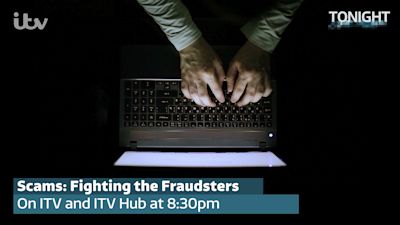Scams: Fighting the Fraudsters

The UK has been branded the fraud capital of the world, with £750 million lost to criminals in bank scams in the first 6 months of last year alone. With scammers increasingly using psychological tricks and manipulating our everyday interactions, what can we do to protect ourselves? Reporter Fiona Foster investigates.
Around a third of all crime today is recorded as fraud, making it the most common offence in Britain. As technology takes over our day to day lives, fraudsters are finding ever more inventive ways of getting what they want from us.
One of the social engineering hacks that scammers use to gain our trust is to use symbols of authority. Fiona meets Jenny Radcliffe, an ethical hacker whose job is to test whether security systems are fraud-proof, using psychological tricks and deception. Jenny heads out on to the streets of London to show us exactly how simple it can be to get unassuming strangers to follow instructions.
"A lot of these scams and cons really rely on people being caught in that moment and acting without thinking too clearly. If someone tells us to do something, and looks like they know what they're talking about, very often people will just kind of go along with what they're being told to do." - Jenny Radcliffe, People Hacker
We meet Michelle who was the target of a delivery driver impersonation scam last year, Lynn who became the victim of an elaborate romance scam - losing £100,000 in the process - and fitness trainer Farren whose social media accounts have been used to create multiple fake accounts.
One of the best things we can do to protect ourselves from scammers, is to think carefully about how much information we are giving away about ourselves on the internet. There are lots of charities and support groups out there, encouraging victims not to suffer in silence.
"They were taken advantage of by very opportunistic, clever and technologically able individuals who do this as their daily job. So it's helping them talk about it, know how to seek additional help to get them to a place where they were prior to being victimised." - Jeffrey DeMarco, Victim Support
Scams clearly aren’t going away anytime soon, but if we arm ourselves with as much knowledge as possible and take that extra time to consider anything that doesn’t seem right, we stand the best possible chance of fighting the fraudsters.
Useful Links:
If you need advice or suspect you may be a victim of fraud, visit Action Fraud or call 0300 123 2040 to report it.
To learn more about how to prevent email, phone based and online fraud, visit Take Five
If you or someone you know may be in immediate danger, call 999